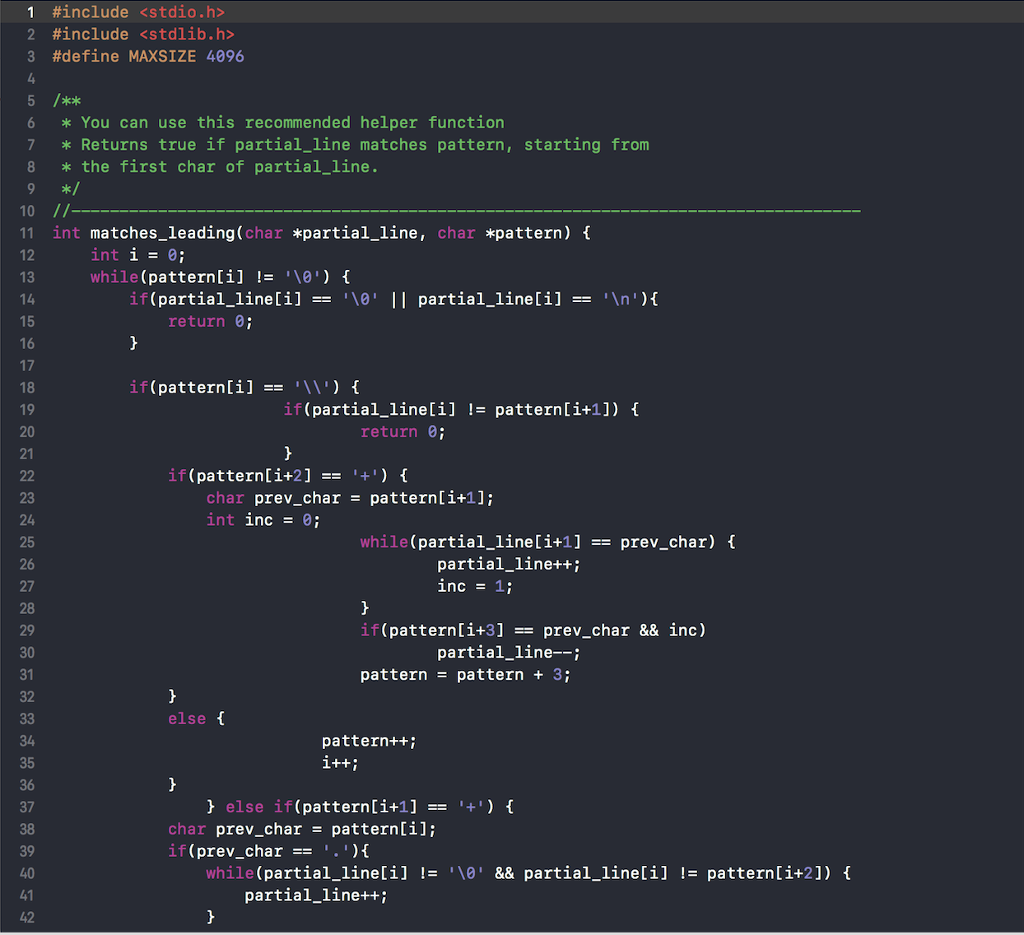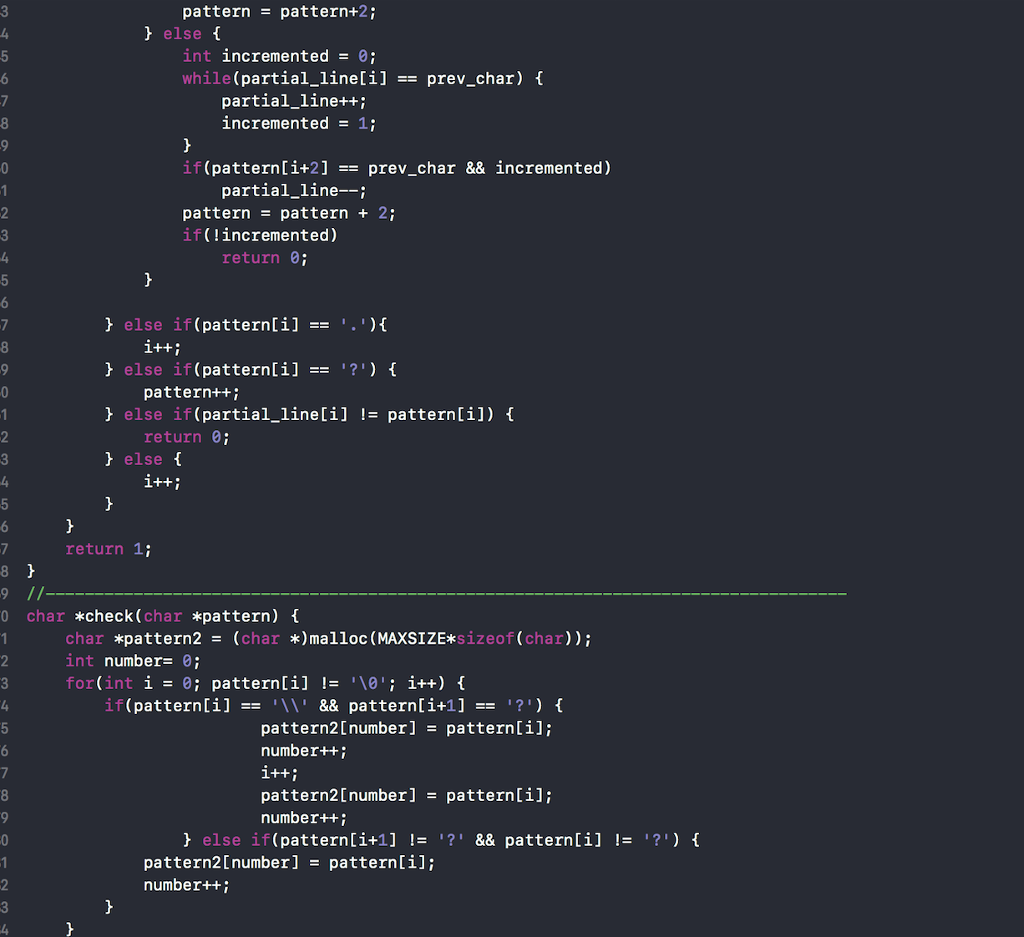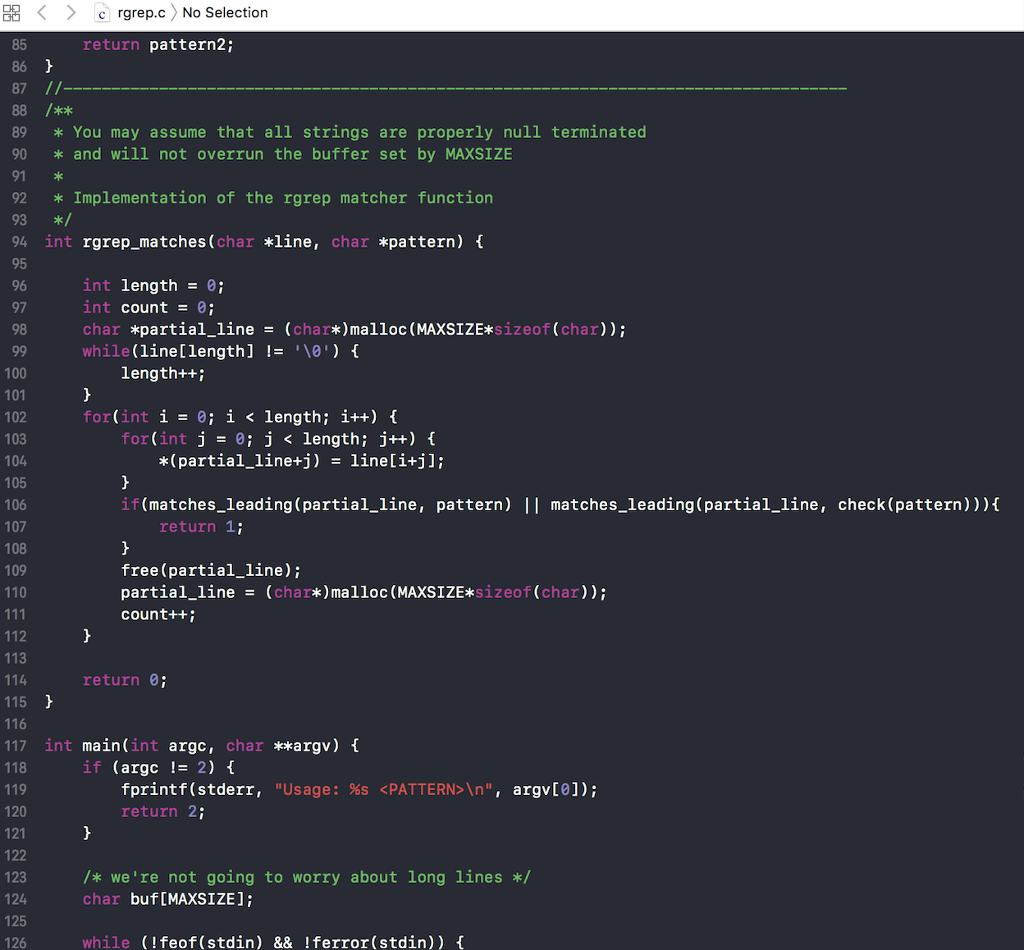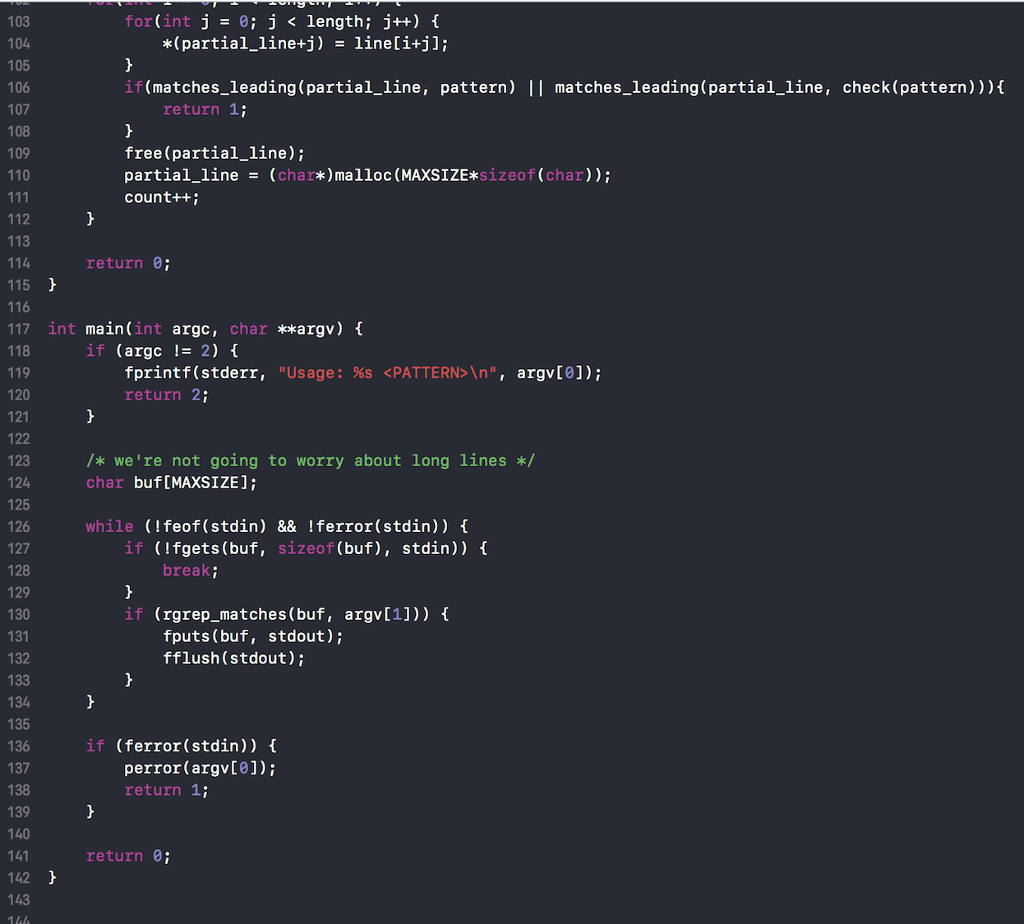Question
#include #include #define MAXSIZE 4096 /** * You can use this recommended helper function * Returns true if partial_line matches pattern, starting from * the




#include
#include
#define MAXSIZE 4096
/**
* You can use this recommended helper function
* Returns true if partial_line matches pattern, starting from
* the first char of partial_line.
*/
//----------------------------------------------------------------------------------
int matches_leading(char *partial_line, char *pattern) {
int i = 0;
while(pattern[i] != '\0') {
if(partial_line[i] == '\0' || partial_line[i] == ' '){
return 0;
}
if(pattern[i] == '\\') {
if(partial_line[i] != pattern[i+1]) {
return 0;
}
if(pattern[i+2] == '+') {
char prev_char = pattern[i+1];
int inc = 0;
while(partial_line[i+1] == prev_char) {
partial_line++;
inc = 1;
}
if(pattern[i+3] == prev_char && inc)
partial_line--;
pattern = pattern + 3;
}
else {
pattern++;
i++;
}
} else if(pattern[i+1] == '+') {
char prev_char = pattern[i];
if(prev_char == '.'){
while(partial_line[i] != '\0' && partial_line[i] != pattern[i+2]) {
partial_line++;
}
pattern = pattern+2;
} else {
int incremented = 0;
while(partial_line[i] == prev_char) {
partial_line++;
incremented = 1;
}
if(pattern[i+2] == prev_char && incremented)
partial_line--;
pattern = pattern + 2;
if(!incremented)
return 0;
}
} else if(pattern[i] == '.'){
i++;
} else if(pattern[i] == '?') {
pattern++;
} else if(partial_line[i] != pattern[i]) {
return 0;
} else {
i++;
}
}
return 1;
}
//----------------------------------------------------------------------------------
char *check(char *pattern) {
char *pattern2 = (char *)malloc(MAXSIZE*sizeof(char));
int number= 0;
for(int i = 0; pattern[i] != '\0'; i++) {
if(pattern[i] == '\\' && pattern[i+1] == '?') {
pattern2[number] = pattern[i];
number++;
i++;
pattern2[number] = pattern[i];
number++;
} else if(pattern[i+1] != '?' && pattern[i] != '?') {
pattern2[number] = pattern[i];
number++;
}
}
return pattern2;
}
//----------------------------------------------------------------------------------
/**
* You may assume that all strings are properly null terminated
* and will not overrun the buffer set by MAXSIZE
*
* Implementation of the rgrep matcher function
*/
int rgrep_matches(char *line, char *pattern) {
int length = 0;
int count = 0;
char *partial_line = (char*)malloc(MAXSIZE*sizeof(char));
while(line[length] != '\0') {
length++;
}
for(int i = 0; i
for(int j = 0; j
*(partial_line+j) = line[i+j];
}
if(matches_leading(partial_line, pattern) || matches_leading(partial_line, check(pattern))){
return 1;
}
free(partial_line);
partial_line = (char*)malloc(MAXSIZE*sizeof(char));
count++;
}
return 0;
}
int main(int argc, char **argv) {
if (argc != 2) {
fprintf(stderr, "Usage: %s
return 2;
}
/* we're not going to worry about long lines */
char buf[MAXSIZE];
while (!feof(stdin) && !ferror(stdin)) {
if (!fgets(buf, sizeof(buf), stdin)) {
break;
}
if (rgrep_matches(buf, argv[1])) {
fputs(buf, stdout);
fflush(stdout);
}
}
if (ferror(stdin)) {
perror(argv[0]);
return 1;
}
return 0;
}
////////////////////////////////////////////////////////////////////////////////////////////////////////////////////////////////////////////////////////
How would you explain this code to somebody? How does a wildcard such as '?' or '+' work on this code.
1 #includeStep by Step Solution
There are 3 Steps involved in it
Step: 1

Get Instant Access to Expert-Tailored Solutions
See step-by-step solutions with expert insights and AI powered tools for academic success
Step: 2

Step: 3

Ace Your Homework with AI
Get the answers you need in no time with our AI-driven, step-by-step assistance
Get Started


